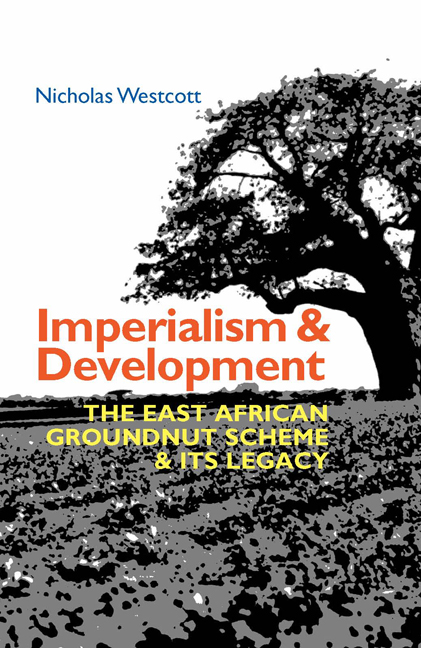Book contents
- Frontmatter
- Dedication
- Contents
- List of Illustrations
- List of Abbreviations
- Miscellaneous Frontmatter
- Preface and Acknowledgements
- Map
- Introduction
- 1 Austerity
- 2 A Scheme is Born
- 3 ‘The Poison of the Official Pen…’
- 4 The Groundnut Army
- 5 Beating about the Bush
- 6 The Overseas Food Corporation
- 7 1949: The Crisis
- 8 The Last Chance
- 9 A Sudden Death
- 10 Legacy and Lessons
- Bibliography
- Index
- Eastern African Studies
10 - Legacy and Lessons
Published online by Cambridge University Press: 26 May 2022
- Frontmatter
- Dedication
- Contents
- List of Illustrations
- List of Abbreviations
- Miscellaneous Frontmatter
- Preface and Acknowledgements
- Map
- Introduction
- 1 Austerity
- 2 A Scheme is Born
- 3 ‘The Poison of the Official Pen…’
- 4 The Groundnut Army
- 5 Beating about the Bush
- 6 The Overseas Food Corporation
- 7 1949: The Crisis
- 8 The Last Chance
- 9 A Sudden Death
- 10 Legacy and Lessons
- Bibliography
- Index
- Eastern African Studies
Summary
At the end of the film Passport to Pimlico, the summer heat wave ends, the temperature drops, the vision vanishes, the temporary madness ceases, and life returns to dull normality. The independent patch of ancient Burgundy vanished from post-war London's bomb-sites, leaving only vague memories and tall tales.
The film is almost a metaphor for the Groundnut Scheme. But the scheme's legacy and its lessons have had a lasting influence – and where they have not, perhaps they should have done. In 1950, one MP predicted: ‘It will really baffle the historian in the future. Many will write a thesis about it, but they will all end in question marks.’ He was wrong about the theses – there is only one that I know of – but it is still worth trying to answer those questions.
This story has been told as a narrative, as only thus can the interaction of the various forces that affected the scheme's destiny be understood. It has focussed on the political and policy dynamic, as much as on the obstacles to implementation on the ground, as in many ways it was the former that dictated the outcome. This chapter is thematic, pulling together conclusions on the issues raised in the Introduction and examining the implications for both the study of development and the experience of managing megaprojects. It examines, firstly, why the scheme failed. It then looks at four wider issues which have been neglected by previous studies. Firstly, where did the money go? Secondly, what was the impact on Tanganyika, on Britain's imperial project in Africa, and on post-colonial Tanzania? Thirdly, it examines the impact of the scheme on the policy, planning and practice of development schemes in general and agricultural schemes in particular. Finally, it assesses the impact on the management of large-scale schemes, or megaprojects, particularly by governments both in Britain and more widely, and tries to draw some lessons we should learn if we are to avoid falling into the same old traps over and over again.
Why did it fail?
In retrospect, like a Greek tragedy, the failure of the Groundnut Scheme was fore-doomed and foretold. Its fate was inevitable. So the first question must be: why was it ever launched in the first place?
- Type
- Chapter
- Information
- Imperialism and DevelopmentThe East African Groundnut Scheme and its Legacy, pp. 189 - 220Publisher: Boydell & BrewerPrint publication year: 2020

